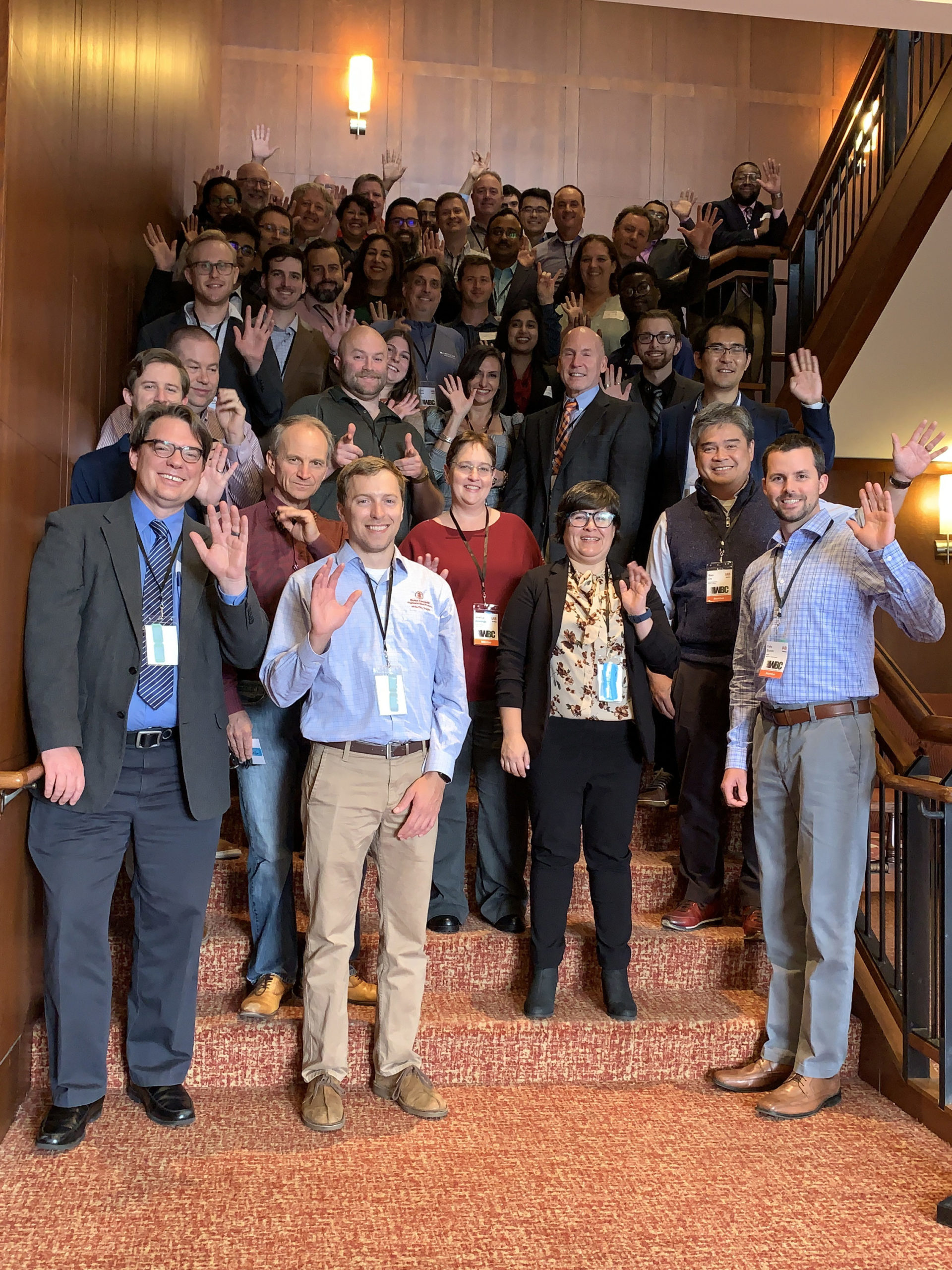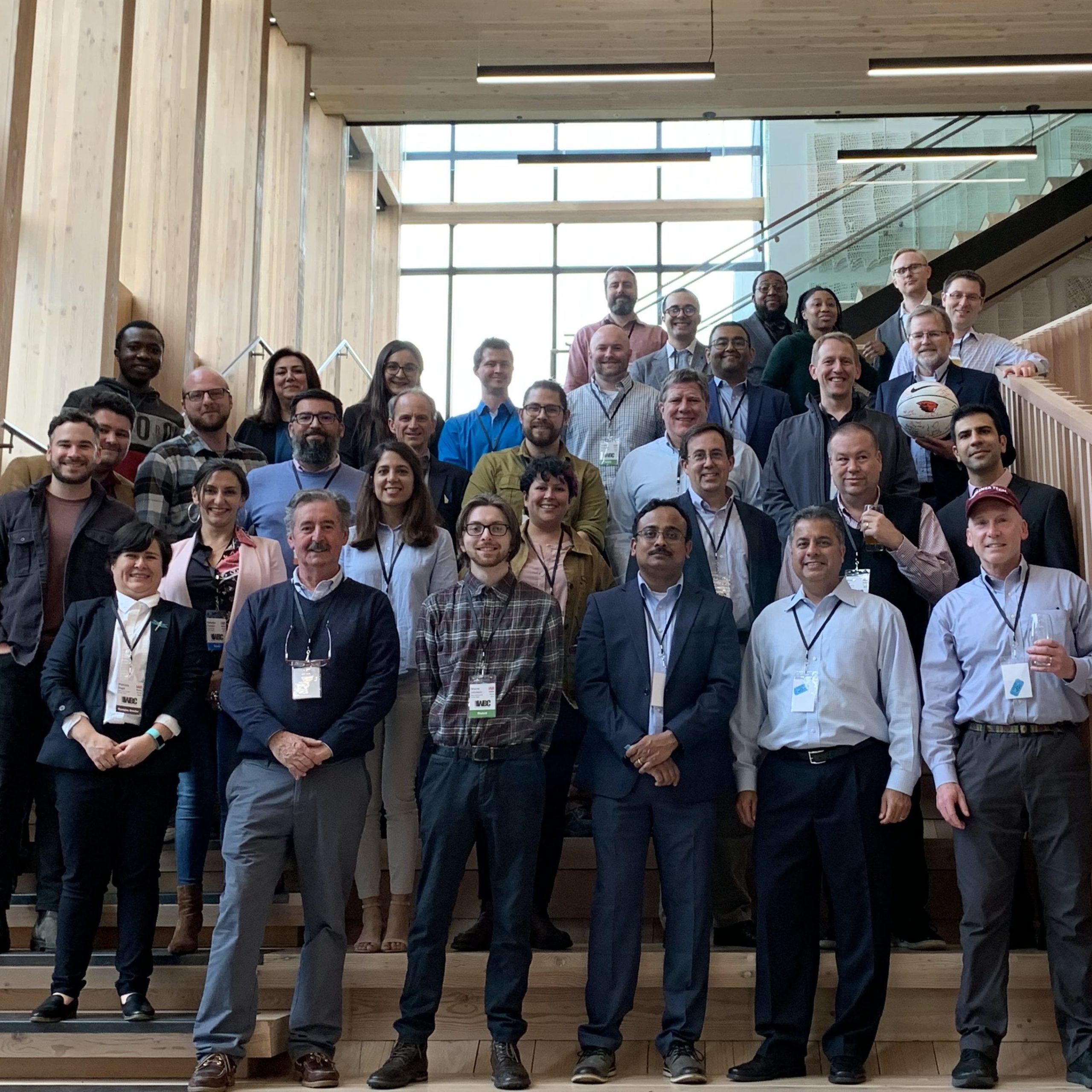
THE WBC
The Wood-Based Composites Center (WBC) is Cooperative Research Center driven by an industry-scientific community that develops research related to composites and renewable materials.
VISION
Be the leading source for fundamental research and education in wood-based composites.
MISSION
Advance the science and technology of wood-based composite materials.
OBJECTIVES
- Promote and coordinate wood-based composites research and education at leading universities across the U.S.
- Attract students to careers in the wood-based composites and adhesion industries.
- Provide continuing education to the wood-based composites industry.
- Provide a forum for intellectual exchange and interaction among professionals and students.
HISTORY OF THE CENTER
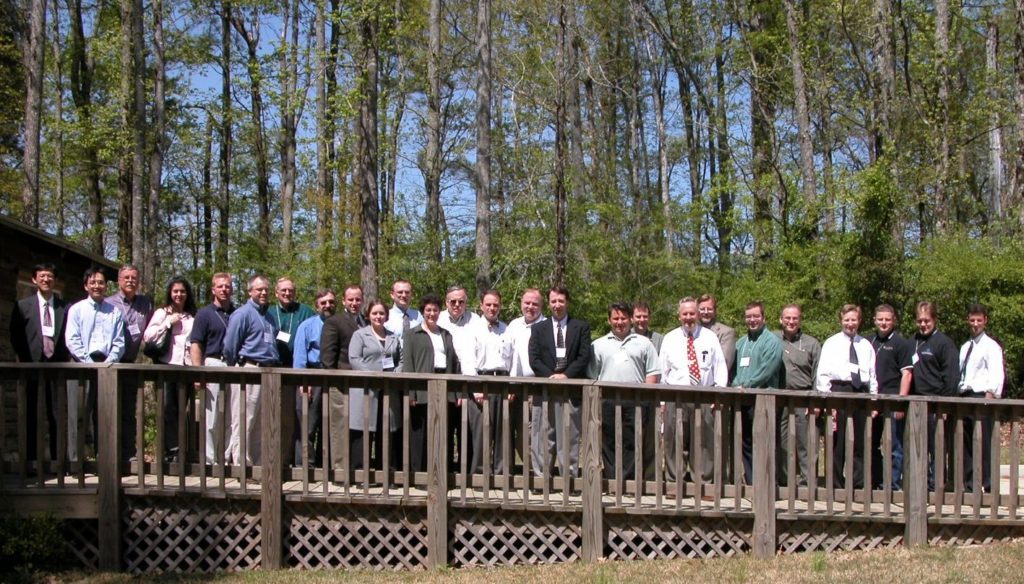
The Wood-Based Composites Center was established on January 1, 1999. The foundation work for the Center began in 1989 when several faculty members in the Department of Sustainable Biomaterials (formerly Wood Science and Forest Products) at Virginia Tech met with a group of forest products company professionals to discuss the composites industry and its needs as related to the university. As a result of that meeting, seventeen companies supported the building of a wood-based composites research lab through monetary, material, and equipment contributions totaling over $140,000. The laboratory is housed at the Brooks Forest Products Center on the campus of Virginia Tech.
The Wood-Based Composites Program continued to grow after this initial activity in 1989. Faculty members continued to meet with industry representatives on a yearly basis. The informal meetings focused on gathering input from companies on research and education needs within the industry. They also gave faculty members an opportunity to share details on research work being performed by the university in the area of wood-based composites. The first of an ongoing series of newsletters from the program was established in 1991. Throughout the 1990’s research funding came mainly from federal grants and contracts.
In 1998, planning meetings were held in Charlotte, North Carolina, and Seattle, Washington to discuss the need for, and feasibility of, establishing a Center to serve the wood-based composites industry. A driving force initiating this activity was the recognized, longstanding need for graduates into the industry, a concern that was raised in ten consecutive years of program advisory board meetings. In addition, the desire for research specific to the business remained. The decision to establish the Wood-Based Composites Center was finalized.
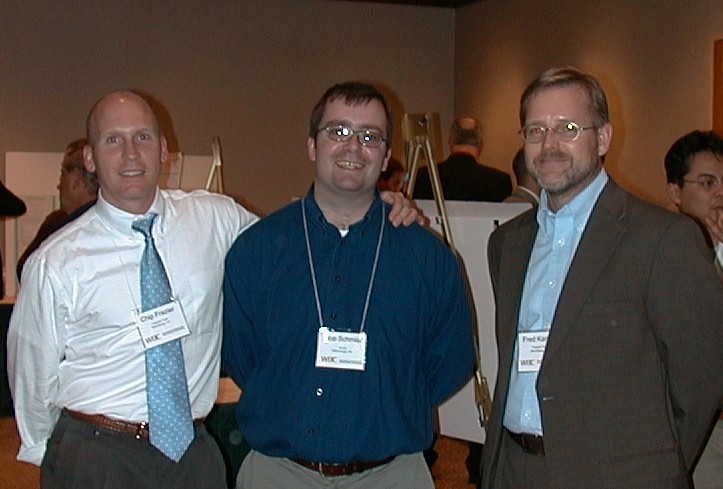
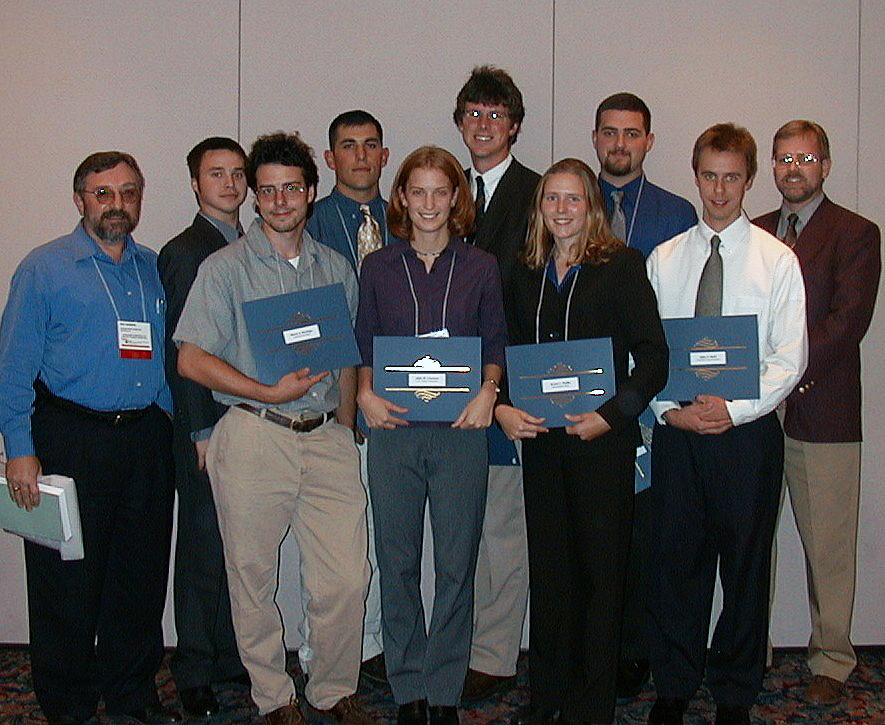
The following companies are recognized as Founding Members of the Center:
Supporting:
- Georgia-Pacific Resins, Inc.
- Huntsman Polyurethanes
- National Starch and Chemical
- Neste Resins Corporation
Contributing:
- Champion International
- The Dow Chemical Company
- J M Huber Corporation
- LP Corporation
- Trus Joist MacMillan
- Weyerhaeuser Company
The Center’s first industry advisory board meeting convened in 1999 at Virginia Tech in Blacksburg, Virginia. Richard Rammon, Georgia-Pacific Chemicals, served as the first Chair of the advisory board. Today’s advisory board is comprised of Executive (EC) and Technical Committees (TC). The advisory board meets twice yearly at locations determined by the membership.
In 2002, the Center was integrated (as an independent unit) into the Sustainable Engineered Materials Institute (SEMI), a federally funded multi-departmental college-level research center in the College of Natural Resources at Virginia Tech. Industry support from WBC members was instrumental to the ongoing funding of SEMI through a USDA Special Grant, further strengthening the productivity and breadth of research by Center faculty.
The founder and first Director of the WBC, Fred Kamke served from 1999 until January 2005. The Center’s first Managing Director, Linda Caudill, was appointed in August 1999. In February 2005, Charles (Chip) Frazier was appointed Director by the WBC Industry Advisory Board. Also in 2005, to better meet the needs of its industry members, the Center moved from an affiliate relationship with MSU, OSU, and Minnesota, to one of a full partnership.
In 2006, the University of British Columbia and the University of Maine were invited to participate as partner universities of the WBC. Mississippi State and Minnesota remained involved in subsequent years as affiliates. In 2015 the IAB TC began awarding funding to Partner Universities, a practice that continues as the Center continues to seek outstanding faculty to conduct research on behalf of its members.
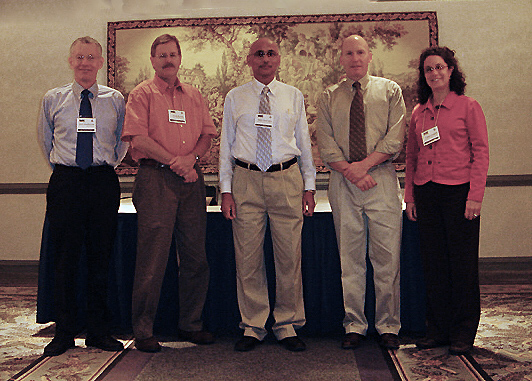
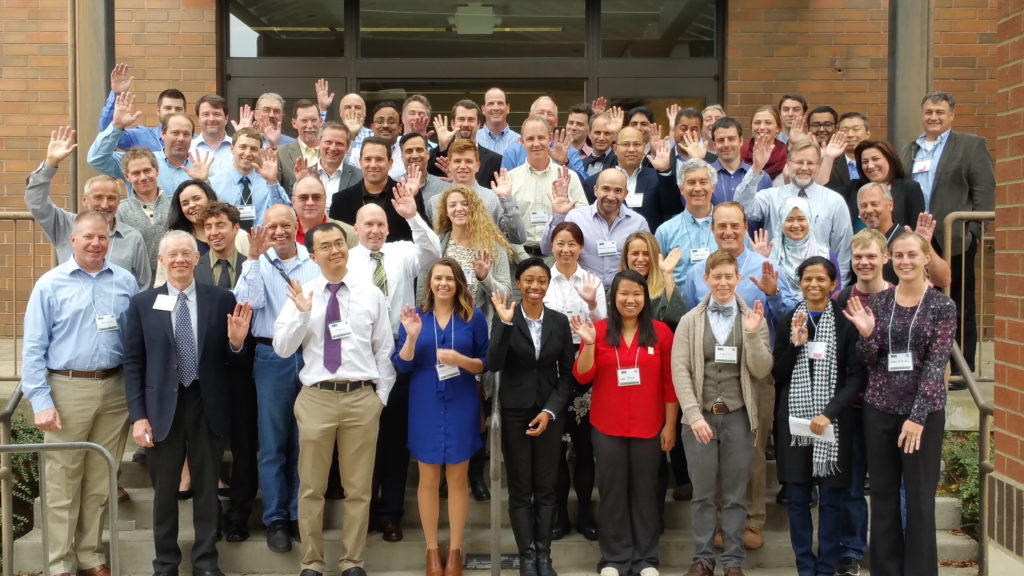
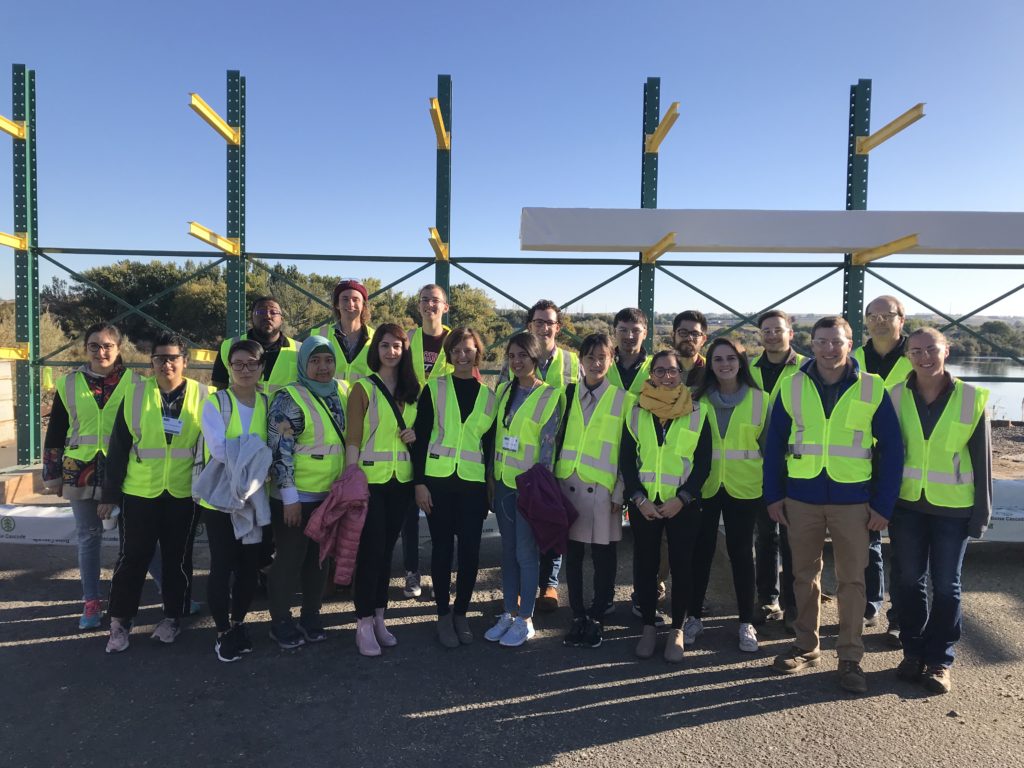
The National Science Foundation awarded the WBC a grant on July 1, 2010, establishing the Center as an NSF Industry/University Cooperative Research Center, I/UCRC. The founding members of the WBC I/UCRC included:
- Arclin
- Ashland, Inc.
- Georgia-Pacific Chemicals
- Henkel Corporation
- JELD-WEN Windows and Doors
- Hexion
- Weyerhaeuser Company
- Willamette Valley Company
In 2016, a Phase II I/UCRC was awarded by the NSF, increasing funding for the center at both university Sites. The Phase II Award supported the WBC as an NSF center through 2022. Under this award, Kamke and Frazier acted as Co-Directors and Dr. Arijit Sinha from OSU acted as associate director. Linda Caudill continued to serve as Managing Director until November 2020, at which time Dr. Patricia Vega took over the role.
In 2022 the founder and co-director of the WBC, Fred Kamke retired and Dr. Arijit Sinha from OSU assumed the role of director of the WBC.
Continuing its work towards advancing the science of composites and renewable materials the center has expanded its research to many fields related to biocomposites.
In 2020 the industry advisory board decided to expand the fields of research on renewable materials to be able to recruit new members that seek innovation in those fields.
